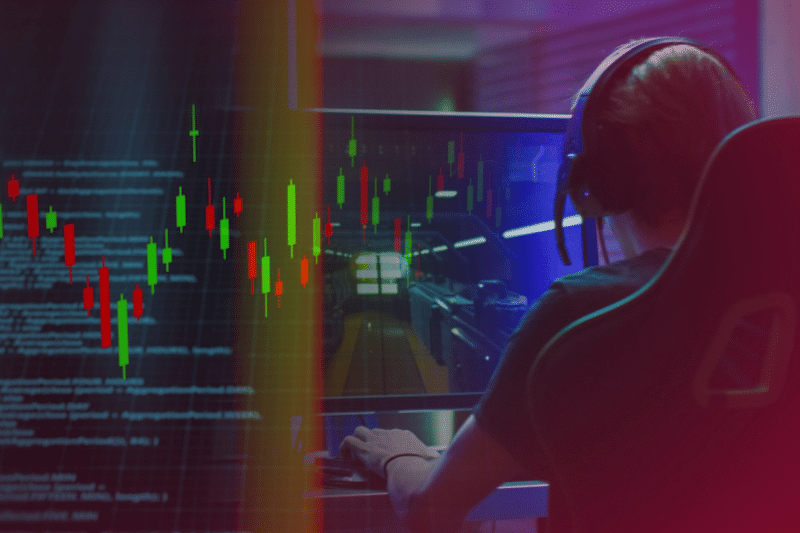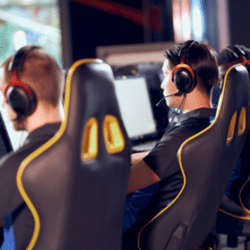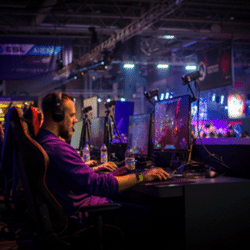
The abbreviation for Electronic Sports is eSports, the professional competitive gaming was given the term only recently. Professionals, commentators, and celebrities appear in eSports, just as they do in traditional sports; the difference is that they do not physically leave the venue. FIFA, for example, has its own eWorld Cup, in which the best professional Xbox and PlayStation players compete in computer games. eSports has grown to such prominence that even the International Olympic Committee is attempting to comprehend the concept.
The classification of video games as sports is a contentious issue. Esports, proponents maintain, are a rapidly rising "non-traditional sport" that necessitates "careful planning, precise timing, and flawless execution." Others argue that sports require physical fitness and training, and therefore esports should be classified as a cognitive sport. Several esports tournaments have been held alongside more traditional international sports championships to help promote esports as a legitimate sport.
 The Asian Indoor Games in 2007 were the first notable multi-sport competition to include esports as an official medal-winning event alongside traditional sports, and subsequent editions of the Asian Indoor Games and their successor, the Asian Indoor and Martial Arts Games, have always included esports as an official medal event or an exhibition event up until now. Furthermore, at the 2022 Asian Games, esports will be included as a medal event.
The Asian Indoor Games in 2007 were the first notable multi-sport competition to include esports as an official medal-winning event alongside traditional sports, and subsequent editions of the Asian Indoor Games and their successor, the Asian Indoor and Martial Arts Games, have always included esports as an official medal event or an exhibition event up until now. Furthermore, at the 2022 Asian Games, esports will be included as a medal event.
It is critical for businesses to understand the gaming community's objectives, including why, what, and how much they play, in order for eSports to continue to thrive in different regions. As competition heats up in the region, this intelligence will be critical in refining how the gaming community is marketed to. Gaming data is essential for enhancing player and audience experiences and fast developing innovations based on their feedback and behaviour. We need to understand how the eSports business can harness and expand its data analytics skills to better community experiences as investment in the sector and overall interest in gaming and competitions grows.
Massive volumes of data are generated in the realm of eSports. Games can be recorded, rewatched, analysed, and imported into databases for comparison and reference. Professional eSports players or athletes used to have to physically attend events to see their opponents compete. Today, however, there are several tools accessible to build strategies and tactics, match analysis, game recordings, and training regimes, so there is no shortage of possibilities.
Audiences may already examine and evaluate public stats on players, teams, and matches on several existing websites. However, as a result of the need for more extensive analysis and pattern detection, dedicated eSports data providers and data analytics organisations have sprung up to meet the need. Machine learning, a kind of artificial intelligence in which raw data is fed to a computer that creates rules, is also used to improve analysis, in addition to manually entering eSports big data into software to find patterns and performance.
 With the number of tournaments and prize money increasing on a regular basis around the world, companies like the Electronic Sports League (ESL) and individual betting companies are utilising the plethora of game data to better control operations, monitor any potential wrongdoings, and improve betting methodologies and matchmaking odds. To build on data analytics research, universities are also cooperating with individual players, teams, and even event operators like ESL.
With the number of tournaments and prize money increasing on a regular basis around the world, companies like the Electronic Sports League (ESL) and individual betting companies are utilising the plethora of game data to better control operations, monitor any potential wrongdoings, and improve betting methodologies and matchmaking odds. To build on data analytics research, universities are also cooperating with individual players, teams, and even event operators like ESL.
Collecting, interpreting, and sharing such massive amounts of data is no easy task, and it necessitates the use of cutting-edge technology to assist data scientists in extracting the vital information that will enable players, teams, and third parties to compete and win. The eSports data provided by the game publisher is extremely important to this ecosystem of stakeholders. Third parties looking to improve fan experiences and increase money can access and analyse data such as participant numbers, viewership statistics, and game results during tournaments. APIs, in fact, are at the heart of many of the technologies that underpin eSports and modern sports, allowing us to have the hands-on experiences we do today.
To assure the accuracy, consistency, and relevance of live and historical data, effective eSports API management and data analytics capabilities will be key to the growth of eSports in the region. Stakeholders in the eSports community can gain the insights they need to improve player development, optimize gaming experiences, and further eSports' mainstreaming with quick, safe access to essential data.
The Data Sports Group is a sports data analytics company with a large content collection that includes data and statistics from over 5000 matches in 50 sports categories. Partner up with Data Sports group and give your business a leg up over competitors.










